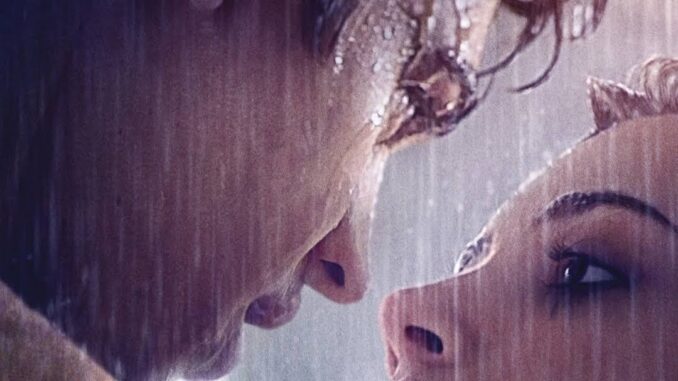
After Everything Review: Does the Final After Movie Satisfy Fans?
From the sweat-soaked pages of Wattpad to the silver screen, the "After" series carved out a unique, often controversial, niche in the romance genre. Born from fanfiction, Anna Todd's saga of Tessa Young and Hardin Scott's tumultuous love story captivated millions, delivering a potent cocktail of passion, toxicity, and eventual redemption. As the final cinematic installment, After Everything, prepared to close the chapter on Hessa, the whispers of expectation reached a fever pitch. Fans yearned for closure, for a definitive answer to the question: would their beloved, flawed couple finally find their hard-won peace? The reality, as it so often is with adaptations, proved to be a mixed bag, offering a form of resolution that satisfied some while leaving many others feeling oddly unfulfilled.
At its core, the appeal of "After" lay in the visceral, almost primal, connection between Tessa and Hardin. Their relationship was a storm – destructive, beautiful, and utterly inescapable. Fans were drawn to Hardin's tortured artist persona, his capacity for both profound cruelty and intense love, and Tessa's unwavering, almost masochistic, devotion to saving him. Each film chipped away at their story, portraying the highs and devastating lows with varying degrees of success. After Everything was positioned as the cinematic swansong, the movie that would finally deliver Hardin's much-needed redemption arc and provide the long-awaited "happily ever after" for Hessa.
However, the film takes an immediate, and for many, disorienting, pivot. Where the previous installments were dual narratives, focusing on the push-and-pull between Tessa and Hardin, After Everything becomes almost exclusively Hardin's story. Haunted by his past actions and grappling with severe writer's block for his second novel, Hardin retreats to Portugal, seeking solace, inspiration, and a way to atone for the pain he inflicted, particularly on Tessa. This shift in focus, while thematically understandable for a redemption arc, inadvertently starves the audience of the very heart of the series: the on-screen chemistry and dramatic interplay between Josephine Langford's Tessa and Hero Fiennes Tiffin's Hardin.
Tessa, the very anchor of Hardin's tempestuous world, is relegated to a more ethereal presence—a muse, a memory, a voice on the phone. Her physical presence is minimal, her emotional journey largely unseen, and her agency often feels secondary to Hardin's internal struggles. This is where a significant disconnect emerges for long-time fans. The entire saga was built on their inseparable, often codependent, dynamic. To conclude it with such a lopsided perspective feels like an incomplete picture, a beautifully painted half of a canvas. We see Hardin struggling, growing, and eventually finding his voice, but we rarely see the collaborative effort, the mutual forgiveness, or the shared healing that was so integral to the books' final chapters.
The narrative itself, compressed into a lean ninety-five minutes, feels rushed, a whirlwind tour through Hardin's self-discovery. We meet new characters who are given little time to develop beyond their utility to Hardin's journey. Plot points from the book are glossed over or simplified, leaving little room for the emotional depth and nuance that the fans had come to expect, even if imperfectly delivered, in previous films. Hardin's eventual breakthrough and the subsequent, albeit brief, reunion with Tessa, feels less like the earned culmination of years of struggle and more like a checklist being ticked off. The final scenes, designed to offer that sweet taste of closure, arrive almost abruptly, leaving many viewers craving more substance, more genuine connection, more Hessa.
So, does After Everything satisfy fans? The answer is a resounding "partially." For those who simply needed a definitive end, a final bow for their beloved characters, the movie provides that. It ties up loose ends, shows Hardin evolving, and gives a glimpse of a future where he and Tessa are finally together. There's a relief in seeing the story concluded on screen, rather than left hanging.
However, for a significant portion of the fanbase, the satisfaction is tempered by a gnawing sense of what could have been. The film offers a conclusion to Hardin's story, but not necessarily to the Hessa story in the way many had envisioned. It lacks the emotional punch, the raw vulnerability, and the shared triumph that characterized the books' ending. It feels like a quiet whimper rather than a passionate roar for a series built on passionate roars.
Ultimately, After Everything serves as a serviceable, albeit flawed, capstone to the "After" cinematic universe. It delivered a form of closure, a final chapter for a saga that captivated a generation. Yet, by sidelining one half of its foundational couple and rushing through its most crucial emotional beats, it leaves many fans with a bittersweet taste – grateful for the journey, but wishing its final destination had been a more robust, more complete embrace of the messy, complicated love story they had followed with such fervor.
